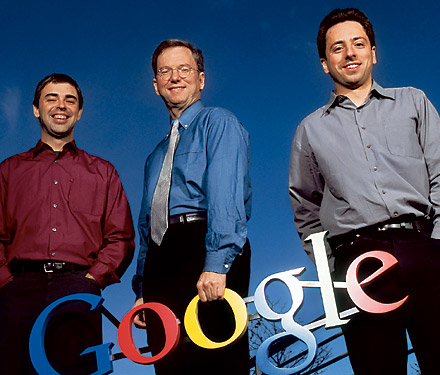Google CEO Ruminates on Life in the Information Age
By Liz Herrin In Industry News, Web 2.0
He began by noting some mundane differences between his graduating class and the current graduating class, including something as simple as the drink of the day. “We had tang,” Schmidt noted. “You have Redbull.”
But his differences quickly revealed a fundamental divide between the mindset of the two age groups.
“We used $700 VCRs. You have YouTube,” which was followed by, “We got our news from newspapers…remember them? You get your news from blogs and tweets.”
Coming from the man who helped revolutionize the way we view, organize, and gain access to information, these comments are given particular credence. Throughout the speech, there was an acknowledgement that information today is acquired through fundamentally different channels. But rather than the new generation using a combination of these sources and technologies, there is an overall abandonment of the old system. Schmidt’s pithy comment about newspapers, “remember them,” was a recognition that this media source has not only been overshadowed or outperformed by online venues. It has been outright replaced.
A very deliberate rhetorical device, it’s no surprise that Schmidt differentiates throughout his speech between “we” and “you.” In this way, “we” (even though Schmidt includes himself in this group) becomes the older, less connected, less tech savvy generation. “You” becomes the generation for which this technology is second nature, commonplace, and expected.
To that end, one can’t help but hear a mix of awe and derision in the way Schmidt said, “We used mainframe computers with 300 MB of storage to go to the moon six times. You use an iPod with 120 GB – that’s 500 times more – to get to your next class.”
But despite all these differences between the age groups, Schmidt was quick to point out that it’s the world we live in today, and this increased access to information not only marks his primary mission with Google, but it also indicates the power of information itself.
With the internet only serving to make us closer and more connected, Schmidt demonstrates this awe in his claim that, “We have an opportunity to have everyone in the world have access to all the world’s information. This has never been possible.”
He concluded his speech with a particularly insightful, though somewhat unexpected, end to his address. He notes that the internet allows information, events, and history to be “kept forever.” With that in mind, he reminded the class to live for the things they truly care about. And that might mean turning off the computers, cell phones, and internet connections and realizing through human interaction that we are all fundamentally the same with the same fundamental drives.
View the speech in its entirety here:
[youtube 6wKFQx30f6M]

No Comment